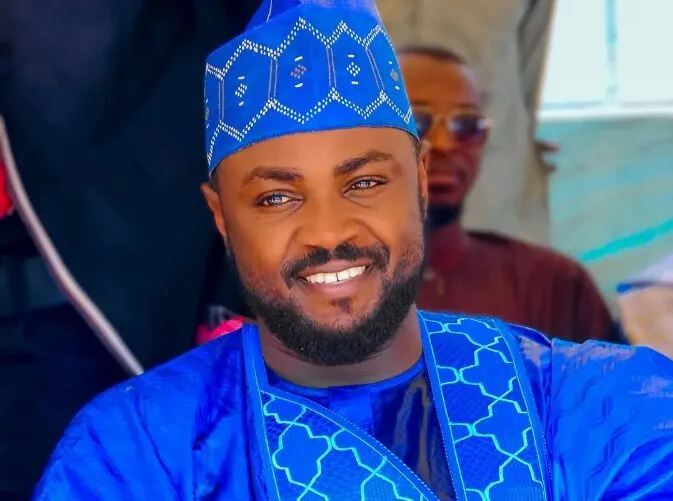
ACE motion picture producer and director Chris Obi Rapu made a moving statement that shocked many after he was presented with the Legend of Nollywood Award last Saturday in Benin City, Edo State. The veteran filmmaker revealed that it was the first time he will be honoured by anyone or institution in spite of his contributions to the evolution of the multi-billion naira motion picture industry called Nollywood.
Flanked by a large crowd of practitioners including those who worked under his direction during his days at the Nigerian Television Authority (NTA), ‘Skipo’ as the tall, well-built and accomplished filmmaker is fondly called, said: “This is the first award they are giving me for starting Nollywood with the millions of jobs it has created. This is the very first award or recognition I am getting almost two decades after. For Paul Obazele (founder of the award) to remember me and put it in, I tell him he will go far. And for all the wonderful people supporting me, I thank you’’.
A thunderous ovation greeted the terse post award remarks by Chris Obi Rapu who is clearly a key founding figure of the home video phenomenon and who should rightly be referred to as the father of Nollywood.
A native of Asaba in Delta State, the story of Nollywood will not be complete without a mention of the legendary role that Skipo played in the evolution of an industry that has continued to engrave its existence in the cultural landscape of Nigeria. No doubt, Skipo played a significant role in birthing an industry that has unarguably revived the appetite for movie viewing and created a vast mediascape where narratives and representations of people’s lives are constantly produced.
A former top staff of the NTA who retired as one of NTA’s most valuable director and producer, it was Chris Obi Rapu who called the shots as director as soon as Kenneth Nnebue was ready to fund the production of the chart-buster movie, Living In Bondage (LIB). This was in 1992, when movies on home video were not so popular. Most of what people purchased to watch at home then were foreign movies and movies that could best be described as tele-movies. But Nnebue wanted something more than the tele-movies or documented stage shows which travelling theatre performers packaged and sold then.
He wanted something more professional, with locations, good acting, costumes and of course, a production that would be professionally helmed. Nnebue asked who he could trust to handle the job and Paulo Ogunjiofor, aka Paulo who should rightly be credited as the Associate Producer of LIB, suggested to Nnebue that they should approach Chris Obi Rapu whom he met in Jos, Plateau State while at the foremost NTA Television College
Even though they were aware of NTA’s policy against private practice, they still approached Skipo who accepted the challenge to turn the idea that was LIB into a masterpiece but on the condition that he calls the shot under the pseudonym, Vic Mordi. He later revealed that Vic Mordi is his wife’s maiden name.
Work started on LIB by mid 1992 with Skipo at the driving seat. And by September of the same year, the first part of the full-length movie in Igbo language, about a once unemployed man whose dealings with a cult group in his quest to get rich result in the death of his wife, was ready. It met the eager viewing audience as Nigeria’s first professionally produced home video. The movie’s success story and a few others after it like Evil Passion, Taboo, Jezebel, and Circle of Doom spurred interest in the sector and paved way for the huge investment that the sector has continued to enjoy.
Unfortunately, whenever the story of LIB is told, those who tell it talk around the story, the impact of the movie, the actors and the producer. Hardly do the narrators mention the contribution of the man with the creative vision: Chris Obi Rapu.
No one remembers the director who put the movie together”, he said regretfully in an interview with The Guardian. “People regard the actors more than the directors, producers and marketers. For instance, government has given some actors national honours and left the directors, including me that started Nollywood. Apart from this Legend of Nollywood Award, I have not been recognized for my efforts. They don’t even mention my name.
There was a time they called me up that the President wanted me included on the honours list but I never heard from them again. What I have observed is that they accord respect here to the actors than the directors and it is wrong. The Auteur theory says it is the director that has the vision. I wonder why you talk about LIB and give awards to the actors and producer of LIB and you don’t talk about the person who helmed it. It is wrong and it is something they must correct”, he stressed.
An accomplished television producer who during his eventful career at the NTA handled top-rated productions for the NTA national station in Lagos, Skipo left for the United States upon retirement on what he said was a mission to conquer other territories. He bagged a degree in communication and a graduate degree in organizational psychology and was on his PhD dissertation when he decided to return to Nigeria to do some work.
Skipo was a Controller of Programme at the NTA when he accepted to direct LIB. So he came to the set with a lot of experience and he revealed that Nnebue almost didn’t believe that LIB would turn out a commercial success.
“I kept telling the producer to put in money, that he was going to get it back. Nnebue had never done any major movie then. He was shooting some Yoruba plays and then Mike Orihedinma was doing something in the east. So he wasn’t sure about the outcome. And truly, the knowledge of people around then couldn’t have made LIB. Most people who worked on the movie with me, like the cameraman and continuity person, were working on a movie of that scope for the first time.
At a point, Nnebue became very apprehensive and I kept assuring him that he would make his money back. So there was a lot of things I did to make the movie came out the way it did. I also knew what I was doing because I was trained and I had cut my teeth with Ola Balogun. I worked with him when he was shooting the musical film, ‘Muzik Man’ and he made me understand certain things about production. Anyway, I was handed a paper with the idea of LIB. They had something they were working on before I came in. I saw it and worked on it and you need to see us on set.
It was as if I was running a school for production because most of those I was going to be working with were having their first major experience on a movie set. Nnebue paid me N10, 000 for directing LIB. However, I told him to come and settle me properly if he eventually makes the money. Unfortunately, he didn’t meet my terms. So when it was time to shoot Part 2, I simply said I was not going to work with him anymore for personal reasons. But that was the story of LIB”, he surmised.
Asked what the future holds for Nollywood, Chris Obi Rapu said the future is bright and big. “I say this because there is a lot of work to be done in third world countries like Nigeria in the sense that everybody needs education. Film is an ideological thing. We as filmmakers must take a stand and reflect the ideology of the country. We don’t want it to be entertainment for entertainment’s sake. There must be a process message even when it is entertainment. I believe that we can help build a better Nigeria through our films”, he said.
And how did he come about the alias ‘Skipo’? He chuckled and replied: “Skipo is the captain of a ship, the captain of the production team. It was Femi Ashekun that was the fist skipper in NTA. But when he left the NTA, the boys decided that I should take over as Skipper so they started calling me Skipo and that was how the name stuck. Whenever they call me Skipo, I remember Portakabin 9 at the NTA and the camp at Badagry where it all started”.






